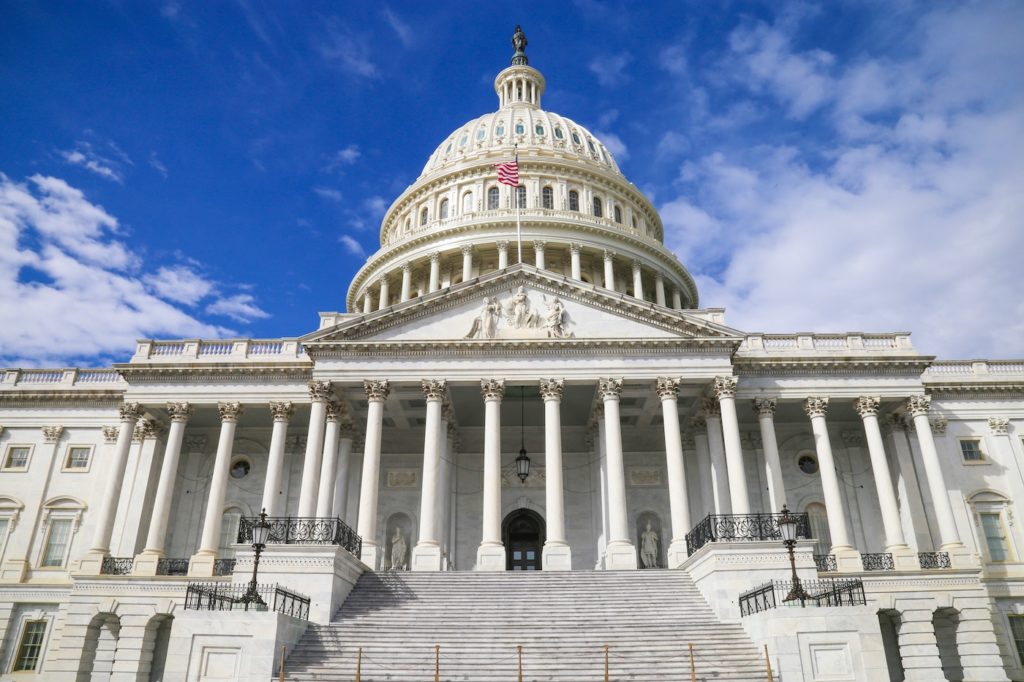Hang around social scientists long enough, and you will hear one of them describe his thesis as the “story I am trying to tell.” This is as true of quantitative, numbers-oriented scholars as of those interested in ideas and historical development. The raw materials of scholarly inquiry do not mean much without a narrative that organizes and makes sense of them all. At the end of the day, we are storytellers.
Here are some raw materials to consider. According to recent Pew Research studies, the percentage of adults who have never married (20 percent), the percentage of parents who are unmarried (25 percent), and the number of adults who are cohabiting with a partner (18 million) are at all-time highs in the United States. One consequence of all of this is that only 65 percent of American children are now raised in homes with a married mom and dad. For black children, that number goes down to 36 percent, according to the government’s most recent population survey. Academics agree on very little, but there is a consensus that these trends have a disproportionately negative effect on the life prospects of poor and working-class children.
So how did we get here?
Is It the Founders’ Fault?
Start your day with Public Discourse
Sign up and get our daily essays sent straight to your inbox.One story on offer is that this is simply what we should expect once the logic of liberalism has worked itself out over time. In Why Liberalism Failed, Patrick Deneen offers a narrative of family decline that begins with the political philosophies of Hobbes and Locke and connects, ultimately, to the American founders. “As Hobbes’s philosophical successor John Locke understood,” Deneen writes, “voluntarist logic ultimately affects all relationships, including familial ones.” If our grounding philosophical assumption is that free and equal individuals in a state of nature take on social obligations only by voluntary choice, then we should not be shocked when the acid of liberal voluntarism washes over the family and substitutes “considerations of individual choice based on the calculation of individual self-interest” for “one’s obligations to the created order, and ultimately to God.”
Deneen’s description of our present political moment as one in which individual self-interest supersedes fixed and given obligations to the created order seems indisputable. His narrative about Hobbes, Locke, and the liberalism of the American founders, on the other hand, stands in a crowded field of rival stories.
Thomas West, for example, devotes a whole chapter in The Political Theory of the American Founding to describing how the founders regarded lifelong, monogamous marriage “as the fundamental condition of the social compact required by natural rights theory.” The culprits in West’s story are not the founders but the twentieth-century progressives who abandoned the founders’ natural-rights theory. According to West, the natural-rights liberalism of the founders not only allows but actually necessitates what we would now regard as a very illiberal body of family law that seeks to confine sex to conjugal marriage and give the family a unified legal existence.
This residual, founding-era understanding of marriage as fundamental to the social compact comes out in John Quincy Adams’ 1842 address to the Franklin Lyceum in Providence, Rhode Island. “The argument of the Lecture,” Adams later wrote as a preface to its publication,
is that the social compact, or body politic, founded upon the laws of Nature and of God, physical, moral, and intellectual, necessarily pre-supposes a permanent family compact formed by the will of the man, and the consent of the woman, and that by the same laws of Nature, and of God, in the formation of the Social Compact, the will or vote of every family must be given by its head, the husband and father.
Adams went to great lengths to underscore the importance of viewing the family as a pre-political institution, founded in nature and undergirding the entire society. “The union of the sexes, founded in the law of nature,” he insisted, “necessarily precedes the social compact which constitutes the body politic, which is an association of families.” As Adams notes, “the human being comes into life, the child of two parents, male and female, both of one species, but of different constitutions, adapted to each other for union.” Nature makes marriage an association founded on the distinction of sex, he observes, but monogamy is “one of the most excellent purifications of the law of nature, by the precepts of Christianity.”
Social Ties and “The State of Nature”
In Adams’s retelling of the origins of the social compact, there is no mention of a state of nature filled with solitary individuals. Instead, there is already in existence an identifiable people in a given territory “consisting of all human beings abiding upon it, men, women, and children, born or in the womb, natives or foreigners, bond or free.” Social ties and obligations are already established prior to the advent of government. The social compact, creating government by consent, is an agreement among families already embedded in communities.
A newborn baby comes into the world utterly dependent on others, Adams reminded his audience, owing her very existence to the “union of two parents many months before.” In turn, “each of these parents, many years before, had been by a similar union of their parents, brought into life in the same manner.” The continued existence of humanity through successive generations necessarily entails relationships of “husband and wife, father and mother – son and daughter, brother and sister.” Having laid all of that out, Adams sensibly concluded that “the nuptial union then is by the law of nature, the foundation of human society,” which makes the obligations and rights of the family and its constitutive members a central civic concern.
From Adams’s vantage point, there was no contradiction between the pre-liberal Christian family and the theory of the American founders, but there was an insoluble conflict between Hobbes and Christianity. “The theory of Hobbes is directly opposite to that of Jesus Christ,” Adams reported, even as he went on to credit Sidney, Locke, Montesquieu, and Rousseau with laying the intellectual foundation of constitutional government in the United States. Well-born and well-educated, Adams displayed more than a superficial understanding of these thinkers, but he read them much differently than many influential twentieth-century political theorists such as Leo Strauss or Wilson Carey McWilliams. That does not make Adams right, of course, but it does give us a different story to consider.
The Dangers of Democratic Despotism
Perhaps Adams spent so much time hammering home his point about the family as the cornerstone of the social compact because he saw the cracks in the foundation that Deneen and others have worked so hard to bring to our attention. It is clear, at least, that Adams was trying to shore up and preserve the work of the founders against a new threat he anticipated over the horizon. In the mid-century rhetoric of democracy, inspired by his bitter political rival Andrew Jackson, Adams saw a worrisome reconceptualization of “the people” as simply an aggregate of individuals, and of democracy as rule of the people without the intermediary institutions of civil society, that would undermine the pre-political social obligations that lay at the base of the social compact, investing “the multitude with absolute power.”
Adams delivered this lecture just as the ink was drying on the second volume of Alexis de Tocqueville’s Democracy in America, which warned of a soft democratic despotism that would operate on an “innumerable crowd of similar and equal men who spin around restlessly, in order to gain small and vulgar pleasures with which they fill their souls.” In Tocqueville’s dystopian vision, each democratic individual, cared for and managed by a central power acting in the name of the people, will exist “only in himself and for himself alone, and if he still has a family, you can say that at least he no longer has a country.”
Can we hold to the truths of the Declaration of Independence—foremost among them that we are endowed by our Creator with natural rights and that government derives its just powers from the consent of the governed—without undermining respect for those natural duties and natural relationships that do not, or should not, depend on our consent? The conversation that has been taking place recently between Deneen and others on this very question is more than merely academic. The answer will point us either toward or away from the founding as we look for intellectual resources to help combat the harmful effects of individualism, which are felt most by the poor and vulnerable members of our communities.
Getting this story right is vital to the project of restoring to the individual of modern times a family, at least, and perhaps even a country.













